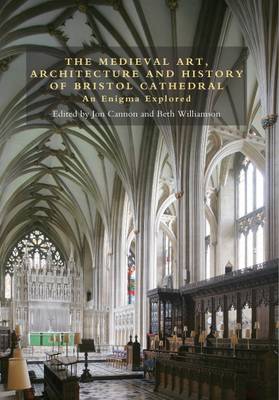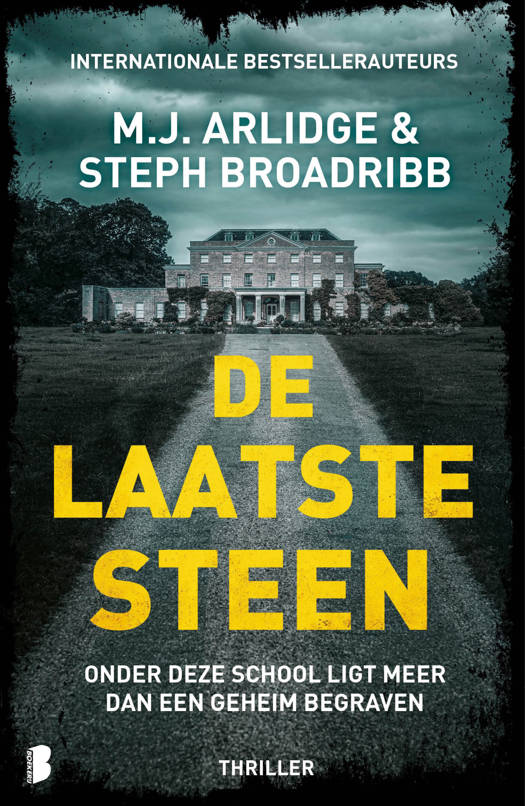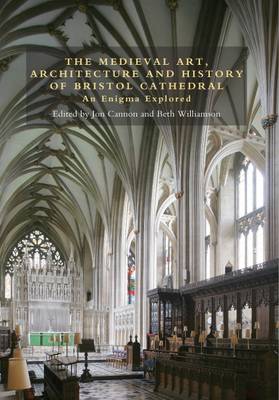
- Afhalen na 1 uur in een winkel met voorraad
- Gratis thuislevering in België vanaf € 30
- Ruim aanbod met 7 miljoen producten
- Afhalen na 1 uur in een winkel met voorraad
- Gratis thuislevering in België vanaf € 30
- Ruim aanbod met 7 miljoen producten
Zoeken
The Medieval Art, Architecture and History of Bristol Cathedral
An Enigma Explored
€ 105,45
+ 210 punten
Omschrijving
Comprehensive and lavishly illustrated survey, by major scholars, of the unjustly neglected medieval art and architecture of Bristol cathedral. Bristol cathedral, formerly the abbey of St Augustine, is a remarkable building. To medievalists it is an enigmatic and compelling place, filled with important work of various periods, work that raises a range of important questions about style, patronage and the intentions behind medieval architecture. Conversely, to the wider public, the cathedral is not well-known compared to others; this spectacular building tends to hide its light under a bushel. Yetits remarkable, and controversial, east end alone is one of the most significant structures of its period in Europe.
This volume aims to remedy the neglect by offering a history of St Augustine's. Highlights include the mostdetailed discussions to date of the later medieval history and architecture of the church and its community, and detailed papers on the dating, attribution, patronage and historiography of the east end. In their introduction and postscript the editors draw on the material presented in the collection to draw out the wider themes and lessons suggested by the building, themes that will be of interest to all with a serious interest in the study of medieval art. Dr Jon Cannon teaches medieval architectural history at the University of Bristol and elsewhere; Dr Beth Williamson is Senior Lecturer in the Department of Historical Studies at the University of Bristol. Contributors: Roger Leech, John McNeil, Sarah Boss, Christopher Wilson, Jon Cannon, Paul Crossley, Julian M. Luxford, James G. Clark, Joseph Bettey, Cathy Oakes, Beth Williamson
This volume aims to remedy the neglect by offering a history of St Augustine's. Highlights include the mostdetailed discussions to date of the later medieval history and architecture of the church and its community, and detailed papers on the dating, attribution, patronage and historiography of the east end. In their introduction and postscript the editors draw on the material presented in the collection to draw out the wider themes and lessons suggested by the building, themes that will be of interest to all with a serious interest in the study of medieval art. Dr Jon Cannon teaches medieval architectural history at the University of Bristol and elsewhere; Dr Beth Williamson is Senior Lecturer in the Department of Historical Studies at the University of Bristol. Contributors: Roger Leech, John McNeil, Sarah Boss, Christopher Wilson, Jon Cannon, Paul Crossley, Julian M. Luxford, James G. Clark, Joseph Bettey, Cathy Oakes, Beth Williamson
Specificaties
Betrokkenen
- Uitgeverij:
Inhoud
- Aantal bladzijden:
- 376
- Taal:
- Engels
- Reeks:
- Reeksnummer:
- nr. 2
Eigenschappen
- Productcode (EAN):
- 9781843836803
- Verschijningsdatum:
- 15/12/2011
- Uitvoering:
- Hardcover
- Formaat:
- Genaaid
- Afmetingen:
- 170 mm x 249 mm
- Gewicht:
- 1115 g

Alleen bij Standaard Boekhandel
+ 210 punten op je klantenkaart van Standaard Boekhandel
Beoordelingen
We publiceren alleen reviews die voldoen aan de voorwaarden voor reviews. Bekijk onze voorwaarden voor reviews.










